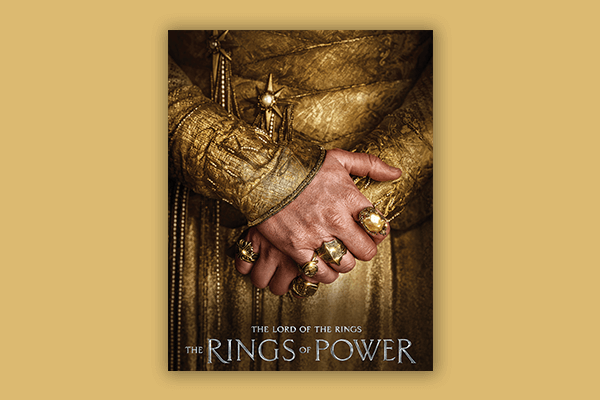THE RINGS ARE BACK. In September, Amazon Prime Video premieres The Lord of the Rings: The Rings of Power, the newest adaptation of J.R.R. Tolkien’s Middle-earth legendarium. From The Hobbit toThe Lord of the Rings trilogy to The Silmarillion, Tolkien is one of the most beloved fantasy authors of all time. His fictional world has captivated generations of readers and inspired countless spin-offs.
The newest series takes place during the Second Age, long before The Hobbit or The Lord of the Rings. It includes some characters portrayed onscreen before and many more not. While a compressed timeline means story changes are expected, fans hope the show retains the essence of Tolkien’s truths rooted in his Roman Catholic worldview. In his essay “On Fairy-Stories,” Tolkien refers to the act of creating fictional stories as “sub-creation.” He writes that humans take pieces of God’s creation and use them to sub-create “because we are made ... in the image and likeness of a Maker.” Because sub-creation is an expression of God’s creativity, Tolkien also believed that fictional stories reflect truth.
Tom Emanuel, a United Church of Christ minister and Tolkien scholar, compares the resilience of Tolkien’s work to that of the Bible. “Why has the Bible continued to resonate for all these centuries? Because it offers us a glimpse of a Truth beyond everyday failures and disappointments, possibility beyond the worst we can do to one another,” Emanuel told Sojourners. Tolkien’s writings reflect the truth of a world in need of healing yet never without hope, a vision that resonates for Christians pursuing social justice.
Read the Full Article

